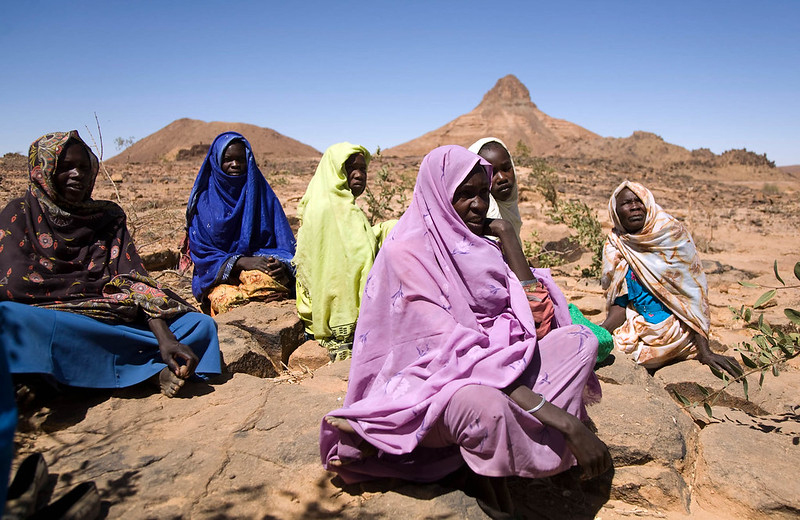OCHA: Sudan crisis is ‘verging on pure evil’

Women in North Darfur (File photo: Albert Gonzalez Farran / UNAMID)
Deputy Special Representative of the United Nations Secretary-General and Humanitarian Coordinator of the UN Office for the Coordination of Humanitarian Aid (OCHA) Clementine Nkweta-Salami, provided updates on the war in Sudan, declaring it “a humanitarian tragedy that only grows bleaker by the day,” during her briefing in New York on Friday.
During her opening remarks at the briefing, Nkweta-Salami explained that “over half of the population – 25 million people – require assistance and protection.”.
“More than six million people have fled their homes and are displaced inside Sudan or in neighbouring countries. They are not just numbers; they are individuals whose lives have been uprooted and changed forever.”
“Frankly, we are running out of words to describe the horror of what is happening in Sudan,” said Nkweta-Salami.
“We continue to receive unrelenting and appalling reports of sexual and gender-based violence, enforced disappearance, arbitrary detentions, and grave violations of human and children’s rights,“ she said. “What is happening is verging on pure evil.“
Nkweta-Salami also touched on the issue of funding, as “Sudan has “received just over a third of the $2.6 billion needed for this year’s humanitarian response.”
Alongside funding impediments, she touched on the “daunting challenge” of maintaining the world’s attention, alluding to the crisis in Gaza which is garnering “much more attention” than Sudan. She maintains that the Sudan crisis has “few equals” due to the “scale “of the crisis and its “depth of misery”.
“What keeps me awake at night are the faces of the people I have met in Sudan – people like you and me – who desperately want to live in peace, feed their families, get health care, and send their children to school. These are the people humanitarians are trying to reach – and we are delivering.”
Jeddah Negotiations
Regarding the Jeddah negotiations, Nkweta-Salami commented that “the Statement of Commitments adopted in Jeddah earlier in the week by the parties to the conflict in Sudan marks a moment of truth for the country. “
“We owe it to the people of Sudan to ensure that the promises made by the Sudanese Armed Forces (SAF) and Rapid Support Forces (RSF) to protect civilians and provide unimpeded humanitarian access are kept.”
As reported earlier this week by Radio Dabanga, Suliman Baldo, executive director of the Sudan Transparency and Policy Tracker (STPT), stresses the importance of the commitments of the SAF and the RSF announced by the facilitators of the Jeddah platform on Tuesday, indicating that it is not a new agreement, but rather “a detail and re-expression of the pledges agreed upon in the May 11 Jeddah Declaration of Principles to Protect the Civilians of Sudan”.
“While the new Jeddah agreement fails to reach a ceasefire, the warring parties agreed that humanitarian aid operations must continue as in similar war experiences”, he said and referred to the current humanitarian operation in Gaza, and the regularity of lifeline relief operations during the war in South Sudan.
He pointed to the importance of the humanitarian mechanism to which the two parties committed to participate under the leadership of the United Nations Office for the Coordination of Humanitarian Affairs (OCHA) in Sudan, to monitor the implementation of their commitments.








 and then
and then